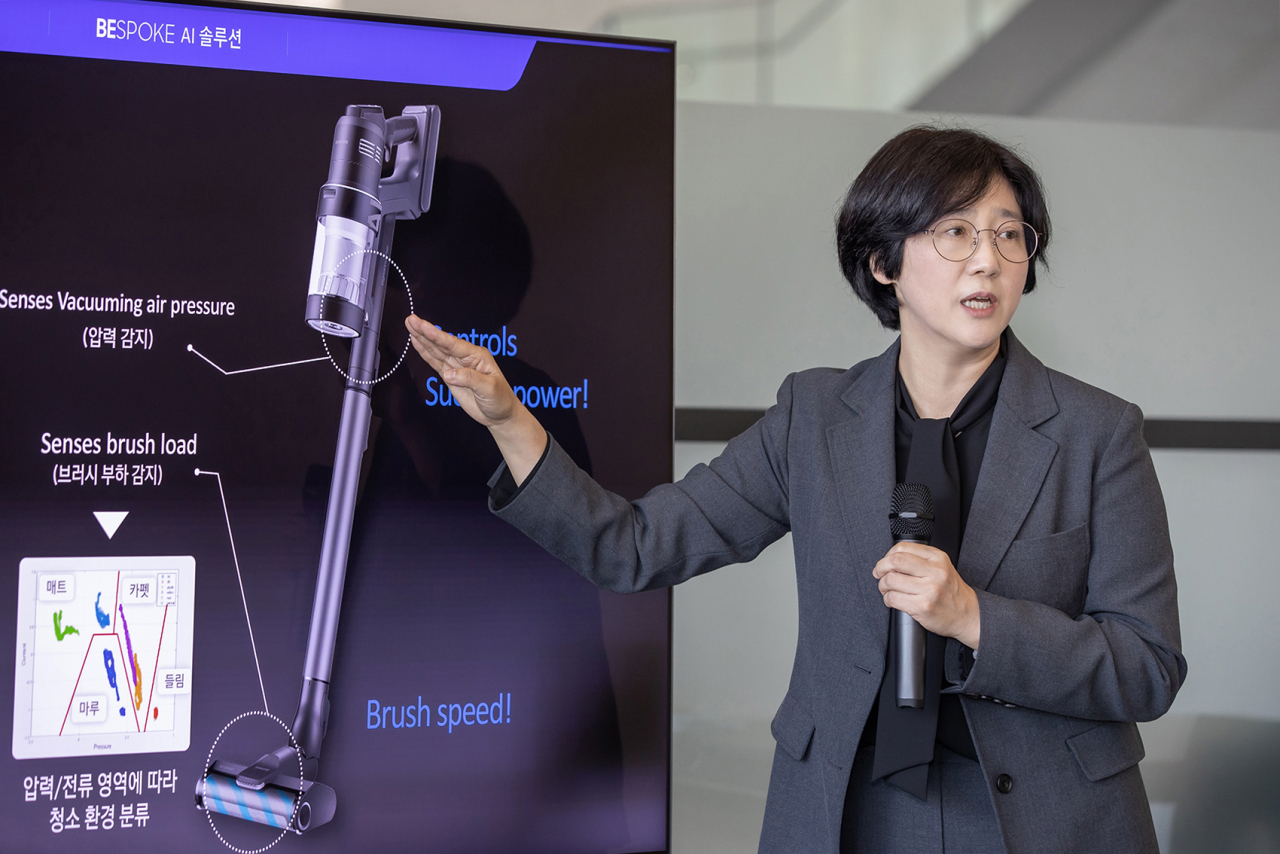Samsung works on energy-saving chips for home appliances
Tech giant mulls adopting generative AI for its Bixby voice assistant
By Jo He-rimPublished : Sept. 4, 2023 - 14:17

BERLIN -- Samsung Electronics revealed it is developing a new neural processing unit chip for home appliances featuring artificial intelligence, to support them to run on ultra-low energy, at this year's IFA, held in Berlin.
With the goal of making smarter home appliances, the tech giant will also adopt generative AI technology for Bixby, its voice assistant, the Korean tech giant said.
"The AI home appliances we envision should be closely connected with each other, and make the best decisions for users by analyzing the surrounding environment on their own and studying user patterns," Yoo Mi-young, vice president leading the home appliances division at Samsung Electronics, said Saturday at a press briefing held on the sidelines of this year's IFA.
"We will continue to enhance our appliances via consistent research and development to provide the most personalized and optimal user experiences," she said.
One of the world's largest consumer appliance trade shows, the IFA runs for five days Sept. 1-6.
A lot of home appliances are used for long time spans -- some are turned on continuously for 24 hours, like refrigerators -- and it may take too much energy to run the AI technology on these appliances. Aware of this, Samsung said it is also developing the chip set to be ultra-low-power, to operate continuously with under 0.1 watts of power.
"We are preparing to commercialize a chip that will be optimal for running 24 hours. We will be adopting such chip sets in our products from next year," Yoo said.
With the envisioned chip set and generative AI technology in support, Samsung's home appliances will be enhanced to reduce "pain points" caused when doing house chores and cooking, Yoo said.
For instance, Samsung's refrigerators will not only be able to identify food ingredients stored inside, but also guide the user to consume them before they go bad. And they will recommend recipes the users can try with the ingredients they have, according to Yoo.
Samsung will also be introducing generative AI technology from next year to upgrade Bixby, its voice assistant featured in a number of the company's consumer gadgets, including Galaxy devices.
Bixby works well, but not well enough to have a natural conversation with users for now. Bixby enhanced with generative AI should be able to understand language spoken naturally, and also remember previous conversations it had with users to continue the dialogue, Yoo explained.
While detailed functions will be announced later, Yoo gave examples of how generative AI will change the user experience.
"Users will be able to ask for a background image that goes well with the day’s weather and the user’s mood, on the screen of the Family Hub refrigerator," Yoo said.
Samsung's electronic devices are all backed by Tizen, a Linux-based, open-sourced web operating system. According to Yoo, there are already over 15 million gadgets connected via the OS.
Introducing the industry’s first Family Hub refrigerator that adopts home IoT features in 2016, Samsung has since expanded the feature to all of its home appliances, including washers and dryers.
As of this year, the tech giant has introduced its AI technology into a total of 15 gadgets, including stick vacuum cleaners, dishwashers and ovens, the company said.



















![[Today’s K-pop] Treasure to publish magazine for debut anniversary](http://res.heraldm.com/phpwas/restmb_idxmake.php?idx=642&simg=/content/image/2024/07/26/20240726050551_0.jpg&u=)